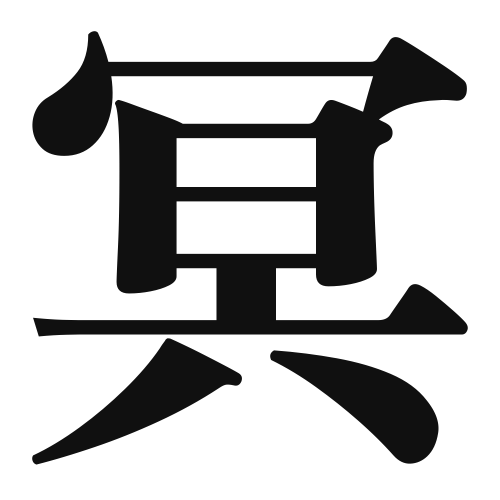1. Overview of Meaning
The kanji “冥” (mei) generally means “dark,” “dim,” or “mysterious.” It is often associated with the underworld or the concept of death, reflecting a sense of obscurity or the unknown.
2. Formation and Radical
Formation of the Kanji: The kanji “冥” is a phonetic-ideographic character (形声文字), which combines a meaning component and a phonetic component. The top part “冂” suggests a sense of enclosure or depth, while the bottom part “冥” relates to the sound and meaning.
Radical: The radical for “冥” is “冥” itself, which is often associated with darkness or the underworld.
3. Examples of Usage
Common Words and Phrases: Some common words that include “冥” are “冥界” (meikai – the underworld) and “冥想” (meisou – meditation).
Example Sentences in Daily Conversation:
- 彼は冥界のことを考えているようだ。 (It seems he is thinking about the underworld.)
- 冥想をすることで心を落ち着けることができる。 (By meditating, one can calm their mind.)
4. Synonyms and Antonyms
Similar Kanji: A similar kanji is “暗” (an), which also means “dark,” but it is more commonly used to describe a lack of light rather than the mysterious or underworld connotations of “冥.”
Opposite Kanji: The opposite kanji is “明” (mei), which means “bright” or “clear,” representing light and clarity.
5. Cultural and Historical Background
Relation to Japanese Culture: In Japanese culture, “冥” is often associated with the afterlife and spiritual beliefs. It reflects the traditional views on death and the afterlife.
Proverbs and Idioms: One common expression is “冥冥たる” (meimei taru), which means “to be in a state of darkness,” often used metaphorically to describe confusion or lack of understanding.
